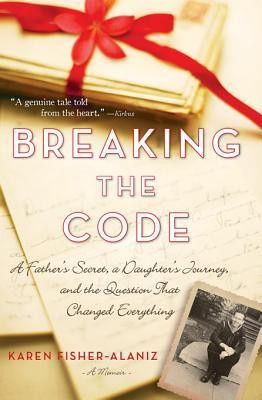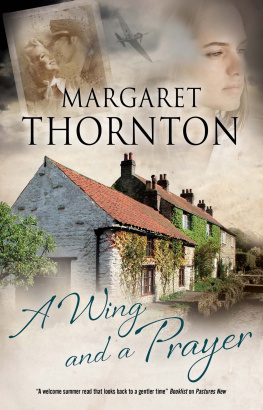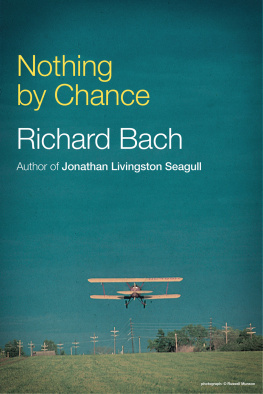
Copyright 2011 by Karen Fisher-Alaniz
Cover and internal design 2011 by Sourcebooks, Inc.
Cover design by Kathleen Lynch/Black Kat Design
Cover image Susan Fox/Trevillion Images
Inset photographs and internal images courtesy of the author
Sourcebooks and the colophon are registered trademarks of Sourcebooks, Inc.
All rights reserved. No part of this book may be reproduced in any form or by any electronic or mechanical means including information storage and retrieval systemsexcept in the case of brief quotations embodied in critical articles or reviewswithout permission in writing from its publisher, Sourcebooks, Inc.
This publication is designed to provide accurate and authoritative information in regard to the subject matter covered. It is sold with the understanding that the publisher is not engaged in rendering legal, accounting, or other professional service. If legal advice or other expert assistance is required, the services of a competent professional person should be sought.From a Declaration of Principles Jointly Adopted by a Committee of the American Bar Association and a Committee of Publishers and Associations
All brand names and product names used in this book are trademarks, registered trademarks, or trade names of their respective holders. Sourcebooks, Inc., is not associated with any product or vendor in this book.
This book is a memoir. It reflects the authors present recollections of her experiences. Some names and characteristics have been changed, some events have been compressed, and some dialogue has been re-created.
Published by Sourcebooks, Inc.
P.O. Box 4410, Naperville, Illinois 60567-4410
(630) 961-3900
Fax: (630) 961-2168
www.sourcebooks.com
Library of Congress Cataloging-in-Publication Data
Fisher-Alaniz, Karen.
Breaking the code : a fathers secret, a daughters journey, and the question that changed everything / Karen Fisher-Alaniz.
p. cm.
1. Fisher, Murray William 2. Fisher, Murray WilliamCorrespondence. 3. World War, 19391945Personal narratives, American. 4. World War, 19391945CampaignsPacific Area. 5. World War, 19391945Cryptography. 6. SailorsUnited StatesBiography. 7. Fathers and daughtersUnited StatesBiography. 8. Fisher-Alaniz, Karen. I. Title.
D767.9.F56 2011
940.548673092dc23
[B]
2011027566
Printed and bound in the United States of America.
VP 10 9 8 7 6 5 4 3 2 1
To my father, Murray William Fisher
And in memory of
my grandmother, Ruby Lavinia Fisher,
and my fathers comrade, Mal
Preface
Regulations required that messages containing communication intelligence be destroyed, and as a consequence, no record of the many successes due to this intelligence can ever be compiled.Vice Admiral C.A. Lockwood in a letter to the Chief of Naval Communications, June 17, 1947.
The journey we embarked on almost ten years ago was a simple one: my father was suffering from nightmares and flashbacks, and I wanted to help him. But as time went on, I learned that in order to help him, I needed to know more about the war.
I am not a historian. I simply learned what was pertinent to helping my father and, eventually, to writing the book you hold in your hands. My fathers little corner of the war is just thata tiny piece of a very intricate puzzle. As such, the information contained here is by no means a complete history of the war or even of his part in it.
It is simply a story, told over time, to the most unlikely of peopleme.
A Word about Words
When I originally transcribed more than four hundred pages of my fathers letters, I did so with meticulous accuracy. I spelled things just as he had, even if it was incorrect (which was rare). I made a note if he wrote something and then crossed it out. The last half of his letters were typewritten in caps, so I even went so far as to hit the caps lock on my computer. However, when the project evolved into a book, some changes had to be made.
In order to keep the story moving, I have left out sections that were redundant or not relevant to the overall story. Where grammar was concerned, I only intervened if an error made the meaning unclear (most of the time, it was a simple issue, like taking out a dash and replacing it with a period or comma). I did, however, choose to keep the spelling of some words, such as tho and tonite, to retain the letters original flavor. I have also kept some of my fathers words that are considered offensive by todays standards.
Obviously, my father did not keep copious notes in the middle of a war. As is the case with most memoirs, I have filled in conversations from memory, notes, and from knowing the cadence and personality of our speech. Every effort was made to stay true to what happened.
I have watched my father struggle over the past ten years to put memories together that his mind had clearly protected him from for more than fifty years. The memories came back in bits and pieces, often seemingly unrelated. It was in the writing of the book that I was able to piece the whole story together. Thus, the chronology of the book does not necessarily reflect the chronology of how his memories came back. As the author of this book, I take sole responsibility for any unintended errors.
Acknowledgments
To my family, who helped me do the research for the book and then stood back and made me look smart. We know who the real smart ones are: to my mother, Bettye Fisher, for her relentless prayers; my husband, Ric; and my children, Danielle, Micah, and Caleb, who sacrificed so much.
To my friends, who encouraged me along the way. To Shirley Pope Waite, my mothers friend, who years ago encouraged me to write. To my friend since childhood, Kristin Dewey, who always believed in me. To Randy LaBarge, who said, This is a story that has to be told. What can I do to help? Your belief in my father and his story breathed new life into the book. To Christine Koehler, your faith in me was contagious.
To the many people who prayed for this project. To Chuck Hindman, for writing the memorial for Mal and for encouraging us to create an intentional time of remembrance. To Ed and Nila Hamshar, for listening.
To Master Chief Intelligence Specialist (Surface Warfare), David L. Murdock U.S.N. (Ret.), a stranger who became a friend. Thank you for lending me your expertise in naval intelligence. You were a lifeline when I needed one.
To Lt. Col. Richard Dixon, U.S. Army (Ret.), who whispered in my ear, You have to get this book published. Its not just for your father. Its for all of us.
To Dr. Jauhiainen, Dr. J., MD, for understanding PTSD and its impact on my father. And for taking the time during your busy workday to listen to his story.
To the strangers who shook my fathers hand and thanked him for his service. Words can never express how important each instance was to him.
To the veterans of wars both past and present. Thank you for your sacrifices that continue long after you return. You are not forgotten. Your story matters.
To the family and friends of veterans, for welcoming our heroes home and for helping them put the pieces of their lives back together long after the homecoming celebration is over.
To the Pacific Northwest Writers Association for putting together a conference that was instrumental in getting this work published.
To all of the wonderful and passionate people at Sourcebooks. And especially to my editor, Peter Lynch, for believing in this book.
Next page








